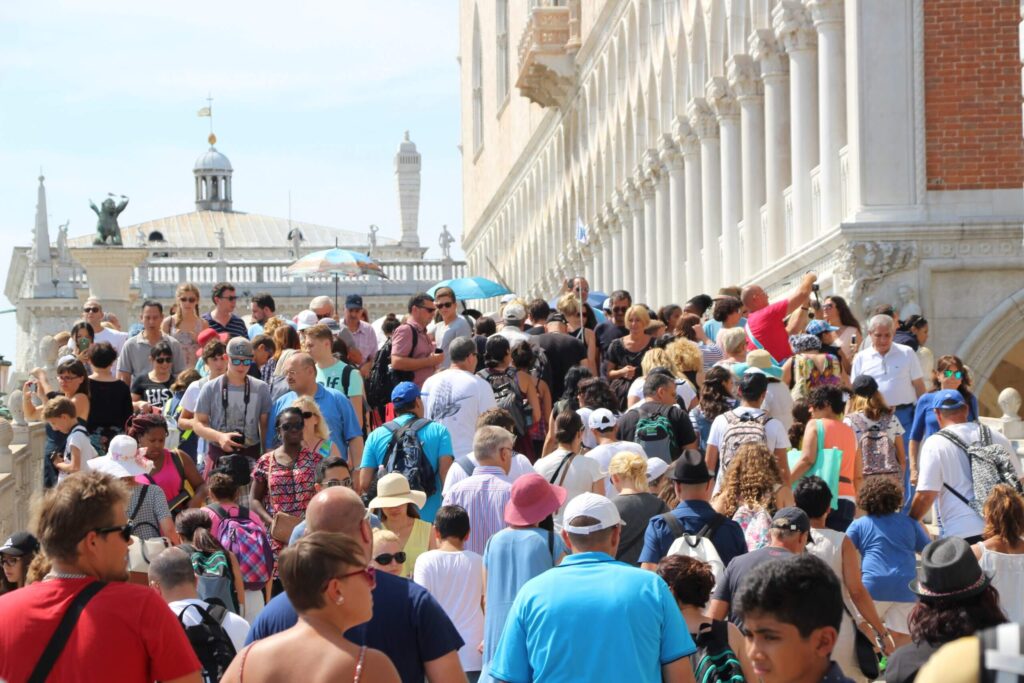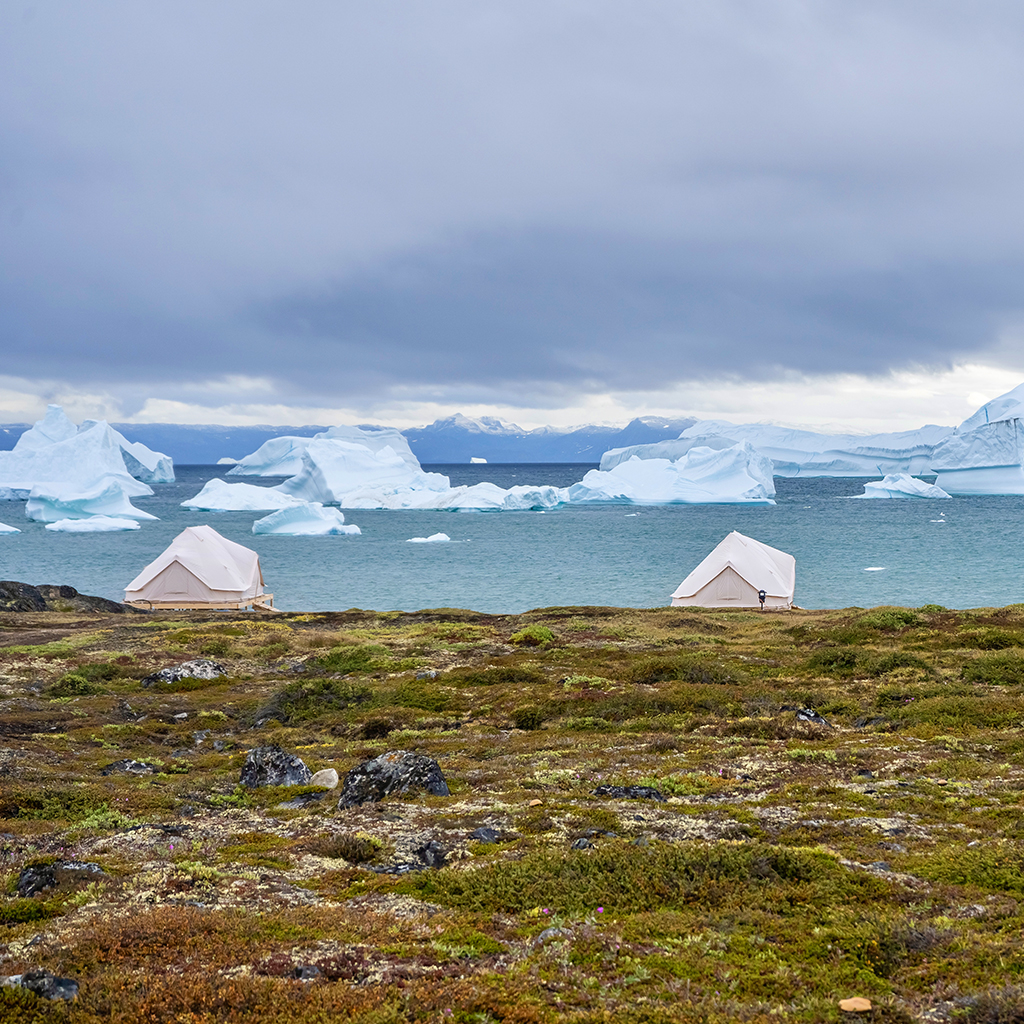
Initials carved in ancient Roman ruins and Japanese temples… travelers bypassing barriers to touch protected (and scalding!) hot springs…
It’s not just you. Bad tourist behavior in the post-pandemic world has reached a stunning new level. From European hubs to US national parks, our newsfeeds never seem to run out of tourist behavior stories that range from baffling to just plain disrespectful.
Not only does this trend highlight the negative impacts of tourism – it also begs some big questions for those who strive to be good tourists:
Is responsible travel still possible?
How do I make sure I’m not contributing to the culture of bad tourist behavior?
And maybe even…
Would it be better to just stay home?
But there’s no need to take your love for travel to such a drastic conclusion. After all, tourism plays a huge role in economies across the world – bad tourist behavior doesn’t change that.
So what can you do? Keep traveling… responsibly! Responsible tourism is possible, and taking part in it helps move the industry in a more ethical direction that won’t keep you up at night.
Read on for more on what responsible tourism looks like, and how you can be part of the change the travel world needs.
What Causes Bad Tourist Behavior? (And Why We’ve Seen an Uptick.)
To be part of the good side of tourism – that is, responsible travel – it’s helpful to know what causes bad tourist behavior to begin with. (Even if you can’t fathom loudly re-enacting a Game of Thrones scene in the streets of Dubrovnik.)
While bad tourist behavior is not a new phenomenon, it’s become both more common and more visible for a few reasons, according to travel experts who spoke to Afar magazine:
- People are eager to travel after COVID restrictions. After two-plus years of pandemic travel restrictions, people are making up for lost time. In Europe, visitor numbers for the first half of 2023 reached 95% of pre-pandemic levels. And iconic, historical destinations were particularly overrun during the summer. Though we don’t have all the data yet, many locals reported more overcrowding than past years. The more tourists there are, the higher the odds that someone will do something a little…erm…ill-advised.
- Travel is more accessible. But that’s a good thing, right? Well, yes and no. It’s economics, and good old-fashioned human nature – when something becomes easy to get (say, when everyone and their mother has a plane ticket to Europe), people tend to value it less. It’s easier for people to forget how unique, ancient and often sacred their destinations can be… not to mention the fact that they’re visiting people’s homes!
- People will do anything for social media. Not only do we all carry a super-powered camera in our pockets everywhere we go, we also live in a culture that rewards us for documenting and sharing our experiences via social media. The urge to get that photo or video can be really, really strong… sometimes clouding our better judgment when we should, say, walk away from the grizzly bear.
Responsible Tourism: Avoiding the Negative Impact of Tourism
“Bad” or “good” tourists, we all want the same thing: to experience the wonder and pleasure of travel… and ultimately, celebrate the incredible planet we share.
“Bad” tourist behavior is what happens when this desire get distorted by consumer culture and the pressures of our always-connected society.
But when you tune out the noise and remember the basic reason you travel, you’ll find that responsible tourism is the logical (and more fulfilling!) way to see the world.
Using some of our favorite spots around the world as inspiration, here are our favorite ethical souvenirs from some of the most fascinating places on this floating sphere we all call home.
What is Responsible Tourism?
Responsible tourism, or responsible travel, is travel that contributes positively to economies while respecting local cultures, history and environment.
It’s also a more fulfilling form of travel. When you travel responsibly, you’ll go beyond surface-level tourism to truly experience the place you’re visiting.
You’ll dive deeper into the culture and have the opportunity to reset your perspective.
…and you’ll travel guilt-free, knowing your money is going straight back into the community you’re visiting and your activities aren’t doing harm to locals’ daily lives.
As you may have noticed, we at The Travel Yogi are very passionate about responsible tourism. For one thing, it’s what we do – we’ve spent years building relationships with small businesses around the world and helping travelers dive deeper into their dream destinations.
But more importantly, we’ve seen this style of travel completely transform people’s relationship with tourism.
Three Ways to Be a Responsible Tourist

Here are the best three ways to make sure you’re traveling responsibly… with examples from our Yoga Adventures!
In crowded destinations, stay off the beaten path.
To make sure you’re not contributing to the overcrowding of popular tourist spots, be mindful when you visit popular destinations like Italy or Iceland.
The tourist attractions you’ve heard of your whole life and seen on social media will probably be jam-packed with visitors.
Take Italy, for example – what cliches come to mind? Probably the Colosseum in Rome and the canals of Venice.
Italy has much more to offer. Ancient history and life-changing cuisine await you in every province. And by stepping off the beaten path, you’ll have a much more authentic Italian experience.
Our Italy Yoga Adventure won’t take you to Rome, Venice, or Milan. Instead, you’ll experience the baroque majesty of Turin, where you’ll weave through cobblestone streets with the locals, and the bucolic countryside of Piedmont, where some of Italy’s most iconic delicacies await you in small kitchens and open-air markets.
Make hyper-local experiences a priority.
When you travel afar, it’s all too easy to fall into an overly-curated tourist experience.
Staying within the confines of a resort, tour bus or neighborhood full of restaurants that cater to tourists keeps you in your bubble. Plus, more of your money will go to large corporations rather than straight to the locals.
Instead, make an effort to visit small, independently-owned businesses whenever you can. And never pass up a chance to participate in daily activities with the locals (only with their express welcome, of course!).
Take Vietnam and Cambodia: Southeast Asia is a remote destination, so you might be tempted to remove some guesswork by heading straight to a beach resort. But you’d be isolated from the local culture you traveled so far to experience!
On our Vietnam and Cambodia Yoga Adventure, you’ll stay out of big resorts as you hop between major cities and small towns. More importantly, you’ll immerse yourself in the culture.
You’ll make a butter lamp with a mother and daughter duo, learn from a fishing family as they bring in their catch and be humbled by the aerobic capacity and tai-chi skills of the women of Hanoi.
Remember you’re not the center of the narrative.
We know, we know, this is very Yoga-travel-company of us to say, but it’s true – even travel experts attribute bad tourist behavior to “main-character” mindset!”
This is simple to put into action: instead of getting caught up in an agenda or checking items off a list, get very specific about your personal “why” – what travel means to you.
Is it to see the world in a different way? Gain wisdom from the past? Connect with others?
Even if you travel for self-discovery, you’re doing so through the lessons and experiences of a new culture. Stay open-minded and curious, put your preconceptions aside and immerse yourself completely in every moment.
Adventure (Responsibly) To 10+ Destinations
Feeling inspired to plan your next responsible adventure? There’s no need to go it alone!
Our Yoga Adventures can take you all across the world, from historic cities to tropical islands or even north of the Arctic Circle!
Every adventure follows the guidelines of responsible travel with conscious, immersive itineraries. You’ll share intimate moments with locals and give back to the places you visit – and you’ll do it all in the company of like-minded adventurers.

